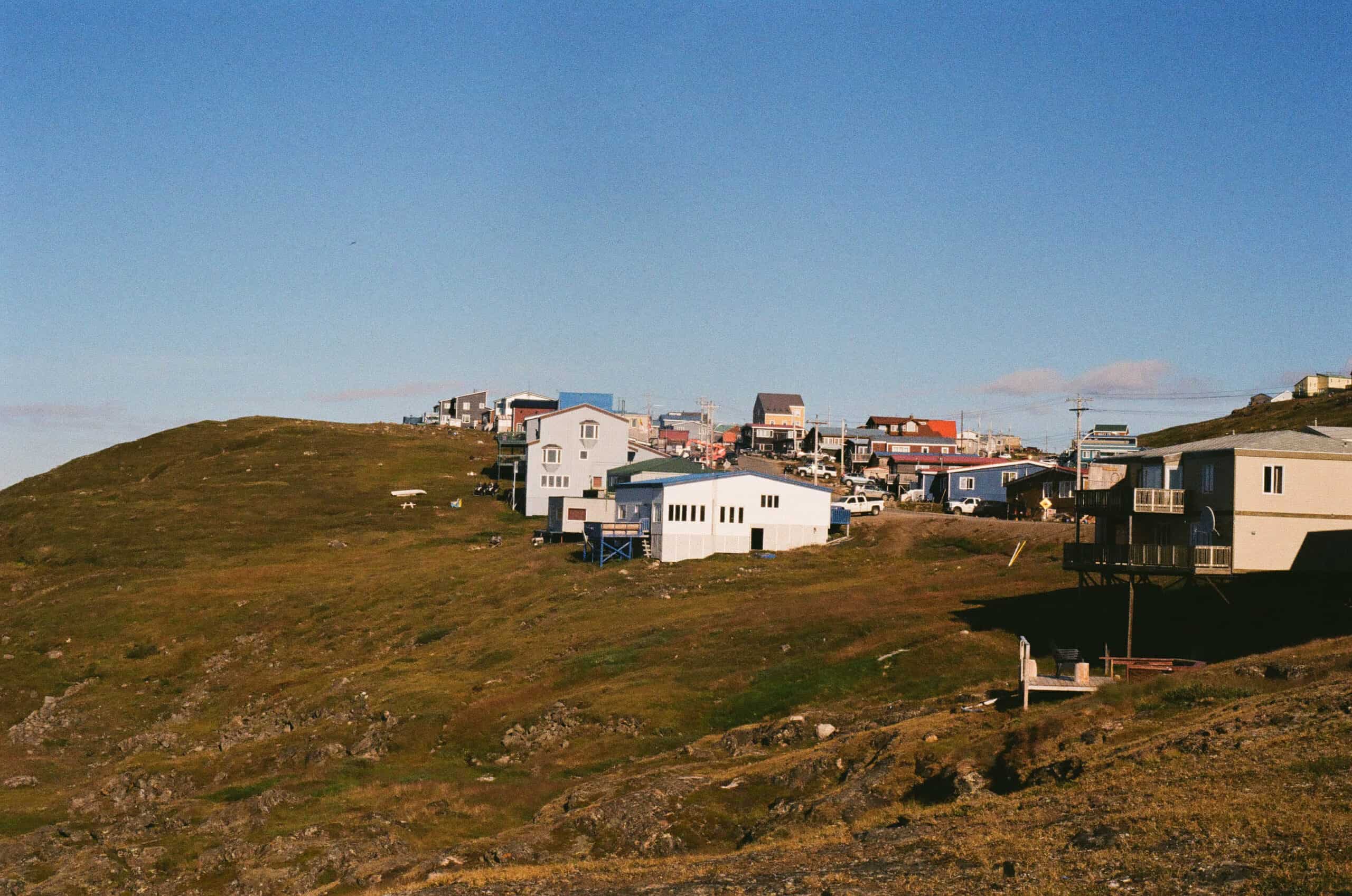- About
- Research
-
-
- Special Reports & Features
- Braiding Accountability: A Ten-Year Review of the TRC’s Healthcare Calls to Action
- Buried Burdens: The True Costs of Liquified Natural Gas (LNG) Ownership
- Pretendians and Publications: The Problem and Solutions to Redface Research
- Pinasunniq: Reflections on a Northern Indigenous Economy
- From Risk to Resilience: Indigenous Alternatives to Climate Risk Assessment in Canada
- Twenty-Five Years of Gladue: Indigenous ‘Over-Incarceration’ & the Failure of the Criminal Justice System on the Grand River
- Calls to Action Accountability: A 2023 Status Update on Reconciliation
- View all reports.
- Special Reports & Features
-
-
- Yellowhead School
-
- The Treaty Map
- LIBRARY
- Submissions
- Donate
Racism in Iqaluit is a historical and ongoing issue that comes in waves, crashing into the city with changes in economic circumstances. These waves are driven by newcomers, who take up more and more, while Inuit are forced to watch and experience the trauma that comes with new hierarchies of injustice. While not new, the dynamics are shifting as racialized workers from Niger, Ivory Coast, Congo, and many other African countries arrive and contribute to the long-standing issues that Inuit face.
How can we work through these shifting dynamics and the complicated layers of colonization and racism to break the historical pattern, enact a new solidarity, and avoid economic exploitation?
We know that the forces that shape our world are structural and in many ways, the oppression that forces migration and anti-Black racism is linked to the very same attitudes and policies that facilitate the marginalization and racist views of Inuit. Without a shared understanding of this reality, our communities in Iqaluit face a troubling future.
In the days of the Hudson’s Bay Company, throughout the 1950s, the upper-class English colonizers sought to control resources and manage relationships between and among people. Lower class English, Scottish and Irish men were hired as labourers for trade and made homes in Iqaluit. Inuit were pushed aside for a smoother colonization.
In the Cold War climate, the American Army arrived, and the dynamic was once again reproduced. White American military men sought to dominate the landscape and hired Black Americans to build surveillance and aviation infrastructure. Inuit watched and were often displaced in the drive to build this infrastructure — much of which would provide the foundation for the city we know today. And then they left. Again, Inuit were pushed aside for a smoother colonization.
The waves of newcomers continued. White women soon joined the transit as social services like education and healthcare required capacity that colonial administrators did not think existed among Inuit. As more infrastructure for the city was required, more labourers arrived — this time, English and French Canadians. They began to compete in their establishment of distinct communities. Inuit were once again pushed aside for a smoother colonization.
Today, as the city grows again amid a booming economy, the same pattern continues: administrative “top dogs” use “lower-class” labourers to achieve their aims, with Inuit largely excluded. We see it all around, as we have in previous waves: who has the lowest employment rates? Who has the housing crisis, who has the bad educational attainment rates, who is experiencing language loss, and who has the highest rate of suicide in the country? Inuit! It is not a booming economy for all of us. Our First Nation relatives know this dynamic well, too.
But now, there is a new dimension. For the past few years, the labour shortage has been addressed by recruiting workers from various regions of Africa. These workers are arriving in Canada via Iqaluit, working as taxi drivers, jail guards, nurses, and are present in nearly every sector of city society. (Iqaluit is attractive for these workers because in addition to jobs, there is also a housing program for employees; Iqaluit can actually be reprieve for people looking for work and homes in Canada). But tensions are emerging between the established white professional class (which is also growing), the racialized new arrivals, and Inuit on the margins.
With this unique dimension to the economic struggle, conflict is emerging, resulting in explosions of frustration and even violence. Colonization is not a smooth process.
I personally witnessed a conflict at an event where the staff were Black and the attendees Inuit and white. Alcohol was involved, anti-Black slurs were uttered, and the result was an Inuk man left needing medical care. This happened despite the similar experiences of colonialism and racism that are shared by Black and Inuit communities. We know that awful racist language continues to be used towards Black people, despite the knowledge that the Black community — newly arrived or otherwise — has its own excruciating, centuries-long experiences of slavery, segregation and racism, which are all rooted in colonization and imperialism. Black communities and individuals continue to fight for institutions and society generally to treat them with equity and Inuit must avoid engaging in racism to vent their own frustrations.
We know that this is all being driven by economic factors and decisions that are not being made by either community. More, anti-Inuit and anti-Black racism is overwhelmingly the practice of qallunaat in Iqaluit (and elsewhere). That has been written about and experienced since the first settlers.
So is there a chance to challenge these structural forces together — or will we allow economic exploitation and the racism that it requires to operate overwhelm us?
How can we use our similar histories to build solidarity? These reflections do not offer an answer. But I hope they may help start a conversation.
Citation: Williamson Bathroy, Laakkuluk. “Reflections on Economy, Racism & Solidarity in Iqaluit”. 19 March 2024. Yellowhead Institute. https://yellowheadinstitute.org/2024/03/19/economy-racism-solidarity-iqaluit/
Featured Image: Yumi Numata

